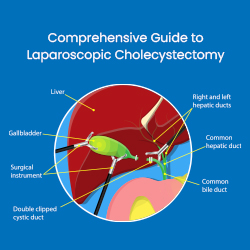Inflammation in joints is a common issue known to us as arthritis. However, when the inflammation is ongoing and occurring in joints on both sides of the body, it is called Rheumatoid Arthritis.
The symptoms of Rheumatoid Arthritis include pain, swelling, stiffness, and fatigue in the joints. This chronic disease does not only affect the joints but also the skin, eyes, lungs, heart, blood, nerves, or kidneys. When it comes to treating it, it is best if RA is identified at its earlier stages.
RA is usually found in people who are aged between 30 and 50. However, it can also occur in younger and older people. Let’s find out what causes RA.
Causes Of Rheumatoid Arthritis
Our immune system decides our health. A healthy person will have a strong ability to identify and fight foreign disease-causing organisms within the body. However, what happens when our body thinks that the cells that are a part of our body are also foreign invaders?
The immune system of a person with RA thinks that the synovium is a foreign substance that should be fought and eliminated. However, the synovium is a soft tissue that lines the inner surface of joints. In layman’s terms, the synovium is what helps the joints move smoothly.
If you have family members who suffer from RA, then it may be one reason why you have it. Some of the other reasons are abnormal immunity, hormones, or something in the environment that triggers it. If it is left untreated, the joints can eventually lose their shape and function.
Treatments For Rheumatoid Arthritis
While there is no cure for RA, there are many treatment options available. A rheumatologist can help identify treatments that work best in your case.
Medications: Depending on the severity of your case, the doctor may recommend steroids, non-steroidal anti-inflammatory drugs, disease-modifying anti-rheumatic drugs, or biologic agents. They usually target the immune system and help fix what triggers the inflammation.
Therapy: Physical or occupational therapy helps in keeping the joints flexible and not stiff. If you are having trouble with joint flexibility, you may need assistive devices that help deal with daily routines.
Surgery: If the medicines and therapy do not reduce the inflammation, you may be required to surgically repair the damaged joint.
Apart from these, the doctor will also advise you to look into some of the home remedies like mild exercises, applying heat or cold, meditating, and more. However, even the home remedies largely depend on exactly what you are going through and will be different for different people.
To understand what works best for you, visit India’s leading doctors in the Specialist Hospital. They will guide you through the whole process of treatment and after-treatment care to help you get back to your regular, unrestricted life.

Comprehensive Guide to Laparoscopic Cholecystectomy: Surgery, Recovery, and Beyond
Dr. Shamna M, Consultant General Surgeon. Have you ever wondered what the most common surgery is in urban areas? The answer may surprise you: it’s Laparoscopic Cholecystectomy. Gallstone disease affects millions of individuals worldwide, causing symptoms ranging from mild discomfort to severe pain and complications. Laparoscopic cholecystectomy, a minimally invasive surgical procedure, stands as the

